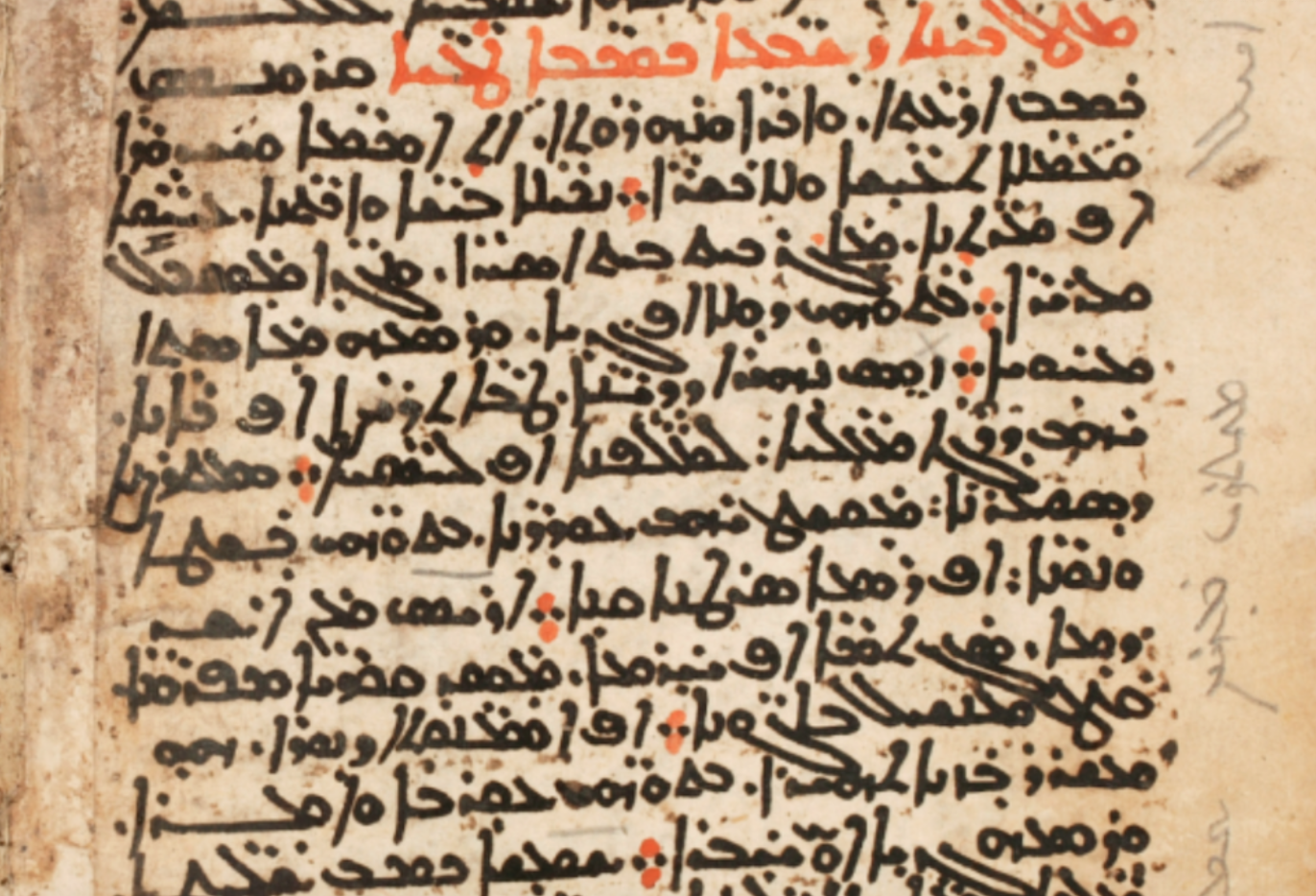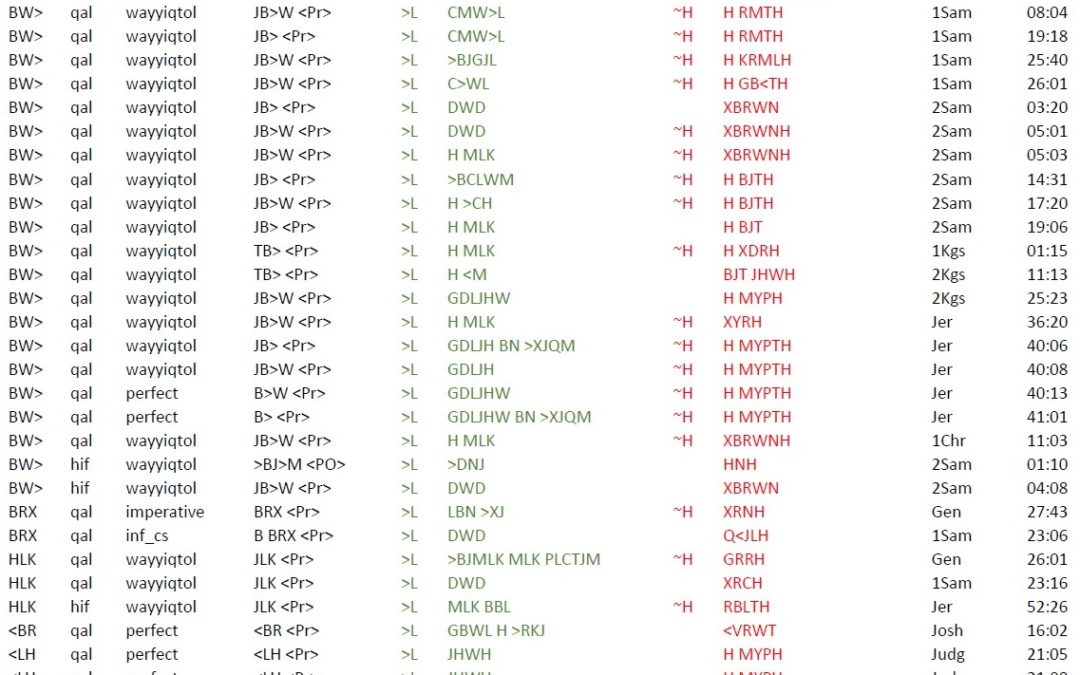
by Mathias Coeckelbergs | Sep 29, 2022 | AI, Bible, Digital Approaches to Sacred Texts, Hebrew Bible, linguistics, Peshitta, semantics, text linguistics
In this third and final blogpost for the PaTraCoSy project (for the previous blogposts, click here or here), we delve deeper into the possibilities of the Colibri Core (CC) infrastructure to study the translation patterns between Hebrew and Syriac versions of the...

by Mathias Coeckelbergs | Jan 21, 2022 | AI, Bible, Computational Linguistics, Hebrew Bible, linguistics, methodology, Open Science, Peshitta, semantics, Syriac, text linguistics
This second blogpost for the PaTraCoSy project brings us to a first discussion of the translation patterns from the Hebrew Bible into the Peshitta. Before we can address the results, we briefly describe how we constructed the model. After installation of Colibri Core,...

by Reinoud Oosting | Oct 22, 2019 | Hebrew Bible, text linguistics, Translation
Working as a Bible translator I am not only interested in the meaning and the literary composition of individual texts, but also in the linguistic patterns underlying these texts. Detecting and registering these patterns helps in gaining inside into the grammatical...
by Christiaan Erwich | Sep 21, 2018 | Computational Linguistics, Database, linguistics, methodology, Open Science, SHEBANQ, text linguistics, Text-Fabric
The research data developed at the ETCBC is live data. The researchers at the ETCBC continuously develop new (theoretical) insights about the research data of the Hebrew Bible and other ancient corpora (e.g. inscriptions from Qumran), review encoding mistakes, and...

by Eep Talstra | Mar 26, 2018 | linguistics, methodology, text linguistics
Last year I had the opportunity to present a paper when our research group, now called ETCBC, was celebrating its 40th birthday (October 31, 2017). In March I will participate in a symposium on the use of text databases in biblical scholarship, organized at the...






